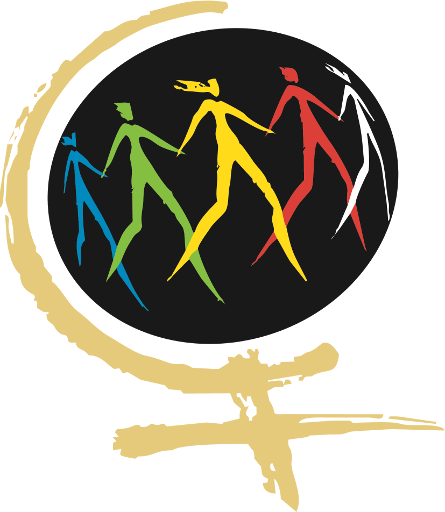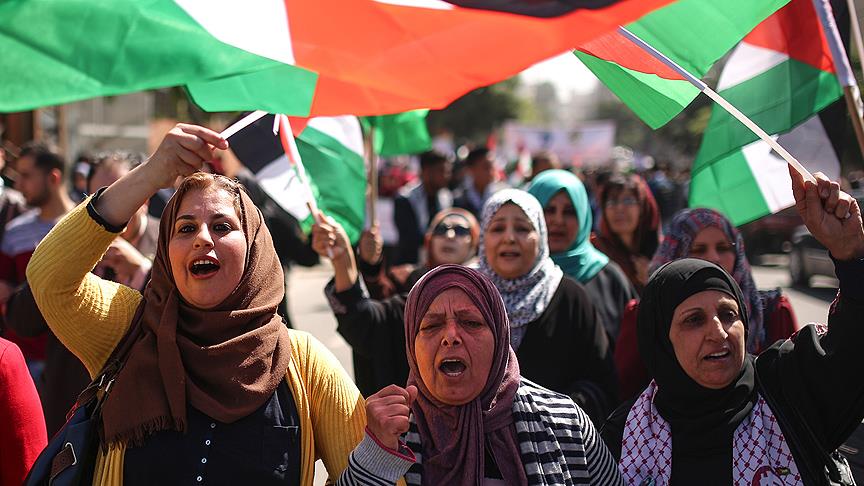We call upon the global community to actively support the Palestinian people and we urge all governments and the UN to use their influence to halt this escalation, to call for an immediate cease-fire and a de-escalation of the conflict, and act swiftly in all international forums to return to a process of negotiation and dialogue and end this ongoing occupation and the war against the Palestinian people and support their quest for liberation.
We stand in solidarity with the oppressed and the victims of historic injustice and power imbalance, particularly with the Palestinian people. We reject violence against civilians and therefore we strongly condemn the Israeli genocidal strategy in Gaza, which is currently under a full blockade, added to the 17 years of siege that had already made 65% of Gazans food insecure.
This insecurity is the product of the weaponization of food by the Israeli occupation to coerce Palestinians into forfeiting their rights. Access to food, water, and medical equipment is used as weapons. Food has become very scarce in Gaza now, in addition to the complete cut-off of electricity and fuel supplies in the strip. More than 2.5 million people are currently trapped in Gaza without any safe place. Almost 6000 Palestinians have been murdered, including 2300 children, and another 18000 were wounded as of October 25, 2023. Hundreds of others remain trapped under the rubble until this day amid the lack of necessary equipment for debris removal and the continuous bombing that is not sparing medical nor rescue teams.
Only 20 trucks of aid were allowed into Gaza since the aggression began, and they cover less than 3% of what Gaza needs per day in normal circumstances to survive. Normally, 600 trucks carrying different human and medical necessities and needs would enter daily into besieged Gaza.
The Israeli occupation has killed as well 103 Palestinians in the West Bank since the beginning of the aggression on Gaza. Daily raids, bombardments, and sieges on cities and refugee camps are being carried out by Israeli occupation forces. More than 700 Israeli military checkpoints divide the West Bank, which completely separates the Al-Aghwar area which produces 80% of the food of Palestinians. Some 100,000 Palestinian families that depend on olive production are unable to access their lands for the harvest now, in Gaza and in the West Bank primarily, due to the thousands of assault rifles that have been distributed by the Israeli government to the settlers. Several Palestinians were murdered by Israeli settlers while working on their lands in the West Bank during the past week.
We extend our solidarity to the Lebanese people as well, especially in the south near the border with occupied Palestine, as they also face Israeli assaults that have displaced many people until now, prevented farmers from accessing their lands, and killed several people including journalists who were covering the developments in the area.
We call upon the global community to actively support the Palestinian people’s quest for liberation. We emphasize the urgent need to end the occupation and to secure freedom for the resilient Palestinian people who have been struggling against Israeli occupation for 75 years.
We believe that addressing food security and the right to food is an integral part of the broader struggle for justice, peace, and dignity for all.
The situation of food insecurity in Gaza, Palestine, is extremely critical. For decades, small food producers, including fisher folk and farmers have been denied access to their waters, land and other crucial common goods. Many were killed by Israeli forces while seeking to secure their livelihoods. The Israeli occupation has created a military exclusion zone on almost half of Gaza’s arable land, and a maritime buffer zone that allows access to barely 15% of the Mediterranean, which makes it impossible for fishermen to catch an adequate amount of fish to sustain their communities. This added to the blockade on exports and imports, access to food, agricultural inputs, and fuel, and the repetitive aggressions turned Gaza into a cramped open-air prison where Palestinians suffer collective punishment and are deprived of their rights, including the right to adequate food. The right to food is recognized in the 1948 Universal Declaration of Human Rights and is enshrined in the International Covenant on Economic, Social, and Cultural Rights which Israel signed and ratified 57 years ago.
“The idea is to put Palestinians on a diet, but not to make them die of hunger,” Dov Weisglass, advisor to former Israeli PM Ehud Olmert. This statement came in light of the “calorie count” created by the Israeli occupation to limit Gazan’s food intake to levels slightly above death-by-starvation. This has now turned into an effective death diet. Israel’s continuous 17-year blockade has also led to a severe water crisis in Gaza, primarily due to Israel’s forced population transfers, exhaustion of Gaza’s freshwater basins, blocking Gaza’s access to the Jordan river, prohibiting the construction of wells, destroying rainwater collection facilities, and the over-pumping of the natural aquifer flowing to Gaza from the West Bank’s Jabal al-Khalil.
The food crisis has been further exacerbated by the systemic poisoning of Palestinian lands and people through frequent herbicide spraying and razing, and the repeated targeted bombings of Gaza’s water, sanitation, and agricultural infrastructure during the 14 aggressions led by the Israeli occupation on Gaza within 17 years in 2006, 2007, 2008 – 2009, 2010, 2011, 2012, 2014, 2015, 2016, 2018, 2019, 2021, 2022, and again now in 2023, during which internationally forbidden weapons such as White Phosphorus are again being deployed both in Gaza and South Lebanon. Since the year 2000, the Israeli occupation has destroyed 3,000,000 fruit and olive trees to displace Palestinian farmers.
In his address to the General Assembly on 20 October, the special Rapporteur on the right to food Michael Fakhri said, “It is very difficult to discuss my report on pandemic recovery when we are witnessing how food is increasingly used as a weapon against civilians either through unilateral coercive measures or in armed conflict. In fact, Food is increasingly being used intentionally to starve people and trigger ethnic cleansing, such as Israel’s denial of food, fuel, water, and medical supplies to Palestinians and other civilians in Gaza. Yesterday, a number of Human rights experts like myself raised the alarm for the risk of genocide against the Palestinian people. We need to reaffirm Security Council resolution 24/17 where the Security Council strongly condemned starving civilians and the denial of humanitarian access being used as a warfare tactic.”
We condemn the renewed Israeli plans of ethnic cleansing and forced mass displacement of Palestinians in Gaza into Egypt, as well as the stances of many European countries and the EU on the ongoing genocidal strategy, which is encouraging its advancement unabated. We encourage them to take stances that are in line with their promoted values on Human Rights in general, and the Right to food in particular, and to refrain from all forms of double standards.
Urging the immediate provision of international protection for the Palestinian people, to protect, respect, and promote all human rights, including the Right to food by urgently applying the CFS Framework for Action for Food Security and Nutrition in Protracted Crises (CFS-FFA). The CFS-FFA provides a roadmap for improving food security and nutrition in protracted crises, with these two principles in it especially relevant and urgent now:
- Meeting the immediate humanitarian needs of besieged Palestinians in Gaza without discrimination, ensuring safe and unhindered access to humanitarian and food aid, and the United Nations assuming its moral responsibility to ensure that this aid reaches them.
- Not to use food as a means of political or economic pressure and the need to refrain from taking unilateral measures that do not take into account international law, including the Charter of the United Nations, and that endanger food security and nutrition, as stipulated in the Rome Declaration of 1996.
We call upon the global community to actively support the Palestinian people and we urge all governments and the UN to use their influence to halt this escalation, to call for an immediate cease-fire and a de-escalation of the conflict, and act swiftly in all international forums to return to a process of negotiation and dialogue and end this ongoing occupation and the war against the Palestinian people and support their quest for liberation.
-This is the solidarity statement of La Via Campasina which is supported by the World March of Women.

